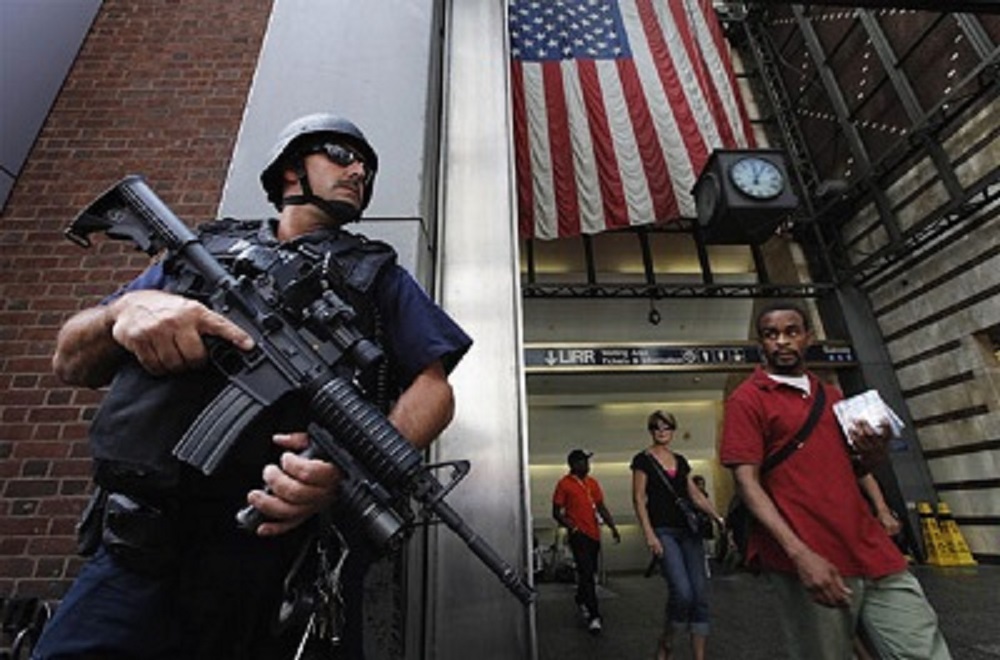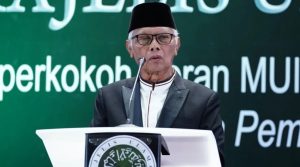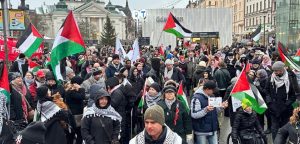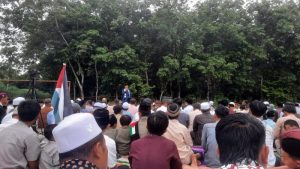Washington, 19 Jumadil Akhir 1437/24 March 2016 (MINA) – Cities across the U.S.A. are preparing for the next phase that inevitably follows a terror attack: anti-Muslim backlash.
Across social media, in public forums on college campuses, and even in mainstream political rhetoric from presidential candidates, anger over the deadly terror attacks in Brussels has spawned discontent and suspicion directed at Muslim groups. After ISIS group claimed responsibility for the attacks, leaders in California, Kentucky, Massachusetts, Minnesota, New Jersey, New York, Ohio and spoke out quickly to dissuade anti-Muslim sentiment, International Islamic News Agency (IINA) quoted by Mi’raj Islamic News Agency (MINA) as reporting.
The aftermath of an attack “is always a difficult time for Muslims in the United States,” said Nabil Shaikh, a leader of the Muslim Students Association at Princeton University.
“On Princeton’s campus, students took to anonymous forums like Yik Yak to comment that there are Muslims at Princeton who are extremists and would therefore condone yesterday’s attacks,” Shaikh said. “These comments not only are appalling and inaccurate but also threaten the well-being of Muslim students.”
Also Read: Trump, Mamdani Aim for Cooperative Relationship After White House Meeting
Unlike in Belgium and Paris following the November terror attacks, the backlash in the U.S. is not as confrontational.
Europe has seen occasional anti-Muslim rallies in Flemish cities such as Antwerp and Ghent. Some Muslim leaders have accused police in Europe of overtly targeting Muslim communities in lockdowns and raids of homes.
Muslim communities in the U.S. face opposition more in the form of rhetoric but in an election year, such rhetoric can lead to sweeping change.
Politics plays a role in fostering anti-Islamic sentiment, said Khusro Elley of Chappaqua, N.Y., a trustee at Upper Westchester Muslim Society in Thornwood, N.Y.
Also Read: Trump to Meet with NYC Mayor-Elect Mamdani at White House on Friday
“The average Muslim still feels intimidated, still feels scared, still feels insecure,” especially in a political climate where it’s become common to depict Muslims as terrorists, he said.
While brutal attacks on Muslims in the United States haven’t been reported to the Council on American-Islamic Relations (CAIR) since the Brussels attack, bullying and hate speech are growing, said Ibrahim Hooper, spokesman for the Washington-based civil-liberties group.
“For girls, it’s pulling on the hijab and calling them terrorists, and for boys it’s saying that they have a bomb in their backpack and calling them terrorists,” Hooper said. Some politicians make the problems worse. “They really have mainstreamed Islamophobia.”
Children hear the hate speech on TV and hear their parents agreeing with it, he said. Increasingly, they’re taking the language to school.
Also Read: Report Exposes Canada’s Role as ‘Weapons Transit Corridor’ for Israel
In Louisville, more than two dozen Islamic leaders gathered on Wednesday to condemn the attacks and urge the public not to link all Muslims with terrorism, describing a growing level of Islamophobia.
Louisville Mayor Greg Fischer, a Democrat, called some Republican political candidates’ responses in wake of the Brussels attack “naive and unrealistic.”
“For them to play to people’s basest fears” to gain political support is “contrary to American values,” Fischer said at an interfaith prayer vigil, contending that such candidates are “masquerading as presidential timber.”
Muslims in Louisville haven’t felt fearful, especially since non-Muslim volunteers came out in force to paint over anti-Islam graffiti two days after the Louisville Islamic Center was vandalized Sept. 16, said Mohammed Wasif Iqbal, head of the center. But Iqbal said some have criticized Islamic leaders for not condemning attacks strongly enough.
Also Read: Trump Designates Saudi Arabia as Major Non-NATO Ally in Historic Defense Pact
“We will stand here every single time and condemn it,” he said, arguing that extremists should not define the Islamic religion.
Muhammad Babar, a Louisville Islamic leader with Muslim Americans for Compassion, called the Brussels attack heartbreaking.
“Do not see us through the actions of ISIL,” he said. “We are as American as you are.”
The Council on American-Islamic Relations’ Florida chapter has seen a fivefold increase in reports of hate incidents during 2015 compared with 2014, 26 vs. five, said Hassan Shibly, the chapter’s chief executive director. A grand majority occurred in the final two months of the year, after the Paris terrorist attacks. (T/P006/R03)
Also Read: Saudi Arabia to Boost US Investments to $1 Trillion: Crown Prince
Mi’raj Islamic News Agency (MINA)
Also Read: New York Mayor-Elect Vows to Uphold ICC Arrest Warrant Against Netanyahu




































 Mina Indonesia
Mina Indonesia Mina Arabic
Mina Arabic